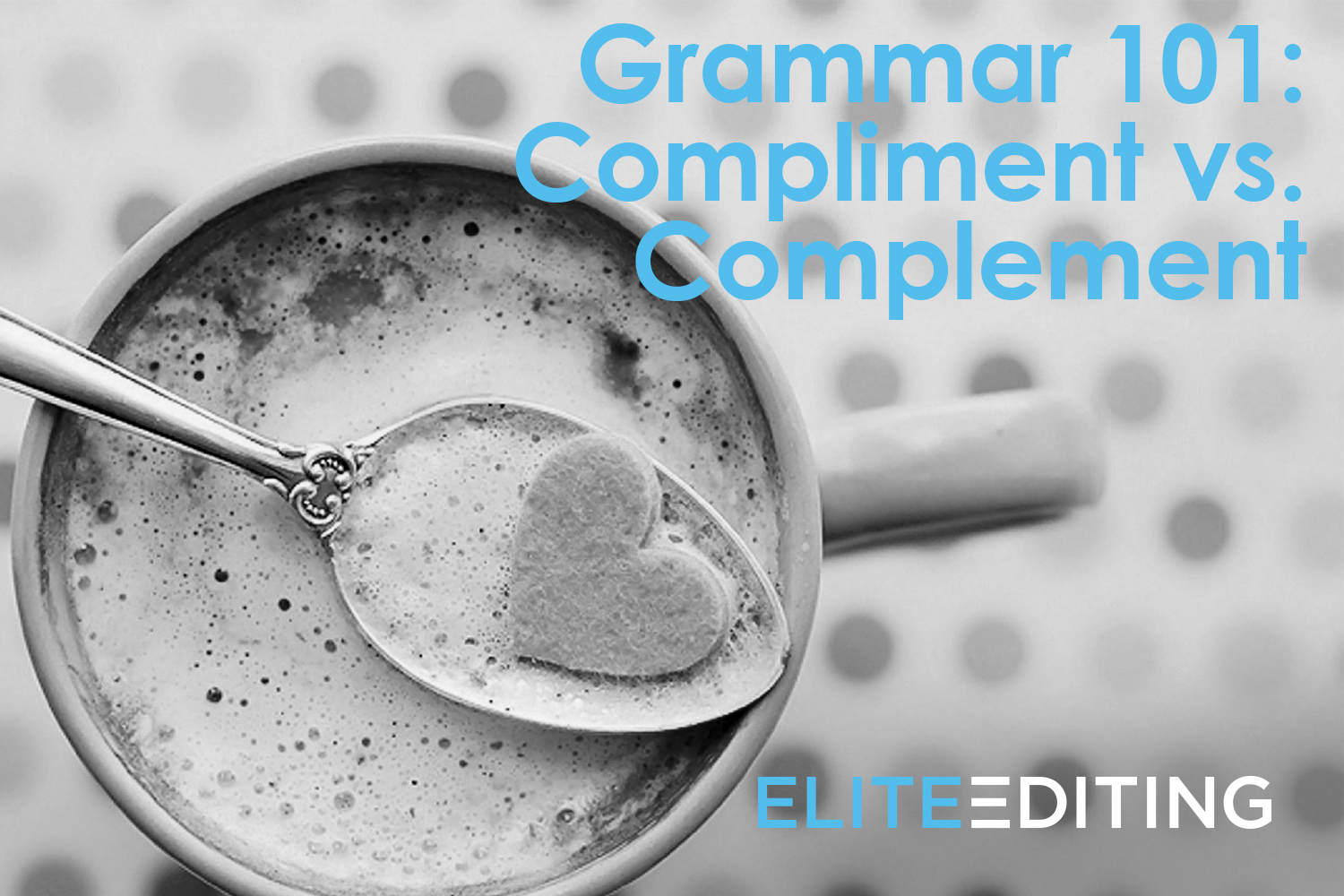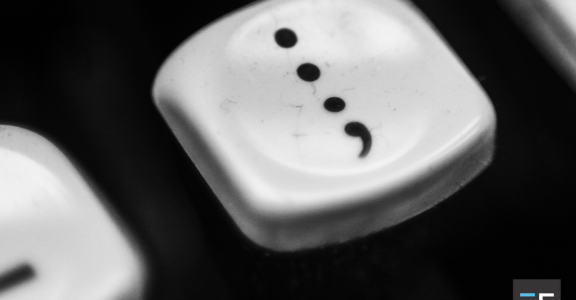Who doesn’t appreciate receiving a compliment every now and again? Compliments are nice and feel good. Compliments are thoughtful and wonderful to share with others, especially when you see someone has added a new, complementing accessory to her wardrobe or when he brings over that perfect complementary bottle of wine for dinner.
Wait, did we just compliment complements?
OK, if that question got your tongue twisted and made your brain hurt, keep reading, and we’ll help you get things sorted out.
Compliment vs. Complement—How to Keep ’Em Straight
To clarify when to use compliment or complement, we must first understand their respective meanings.
The word “compliment,” spelled with an i, refers to the action of expressing praise or admiration or flattery. It can be used as a verb (He complimented their performance) or as a noun (She appreciated the beautiful compliments). Additionally, it is often used as an adjective (They wrote a complimentary speech). You can give a compliment or receive a compliment. You can make a compliment or you can blush at a compliment.
To understand its definition, recognize that a compliment consists of expressive words intended to make others feel good. They convey a positive sentiment.
The word “complement,” however—spelled with an e—describes when one thing completes another thing (i.e., to fulfill or make whole). It can also be used a noun, verb, or adjective. You are my complement. You complement me so well. We are incredibly complementary! (Aww…)
Of course, it’s not always so poetic. One has only to think back to her days in school to recall that in geometry, we studied complementary angles; in art, we studied complementary colors; and in chemistry, we learned about complementary sequences. Look around, and you’ll find complements everywhere. A brightly colored hat that complements a dark coat. A cherry that complements a hot fudge sundae. A touch of parsley, sage, rosemary, and thyme that complements a juicy steak!
To understand the definition of “complement,” recognize that if two items go well together, the end result is better, and it was the complementary item that helped make it complete.
But Wait—They Sound Exactly the Same
Correct: the words “compliment” and “complement” are homonyms, or words that are pronounced the same way and sometimes (although not always) spelled the same but that have different meanings. If you write a sentence using the wrong homonym, such as mistaking “complement” for “compliment” or vice versa, it could make for some interesting phrases!
Here are some examples:
Her friends complimented the way her new necklace glittered in the sunlight. “Thank you for all the complements,” she said.
“Those blue pillows would compliment our new sofa perfectly,” they cried.
“It’s a complement to have my recipes reviewed by the top chefs in the country,” he said.
Did you catch the errors in these sentences?
It all comes down to one letter: i or e.
Compliment or Complement? A Quick Trick to Choose Correctly
It’s frustrating that two long, ten-letter words that sound identical could have their meanings altered by just one little vowel. But alas, that’s what we have with compliment vs. complement. Do we use the i or choose the e? How can we know which is correct?
Here’s a quick trick to make the right choice.
If you’re trying to write the word that means praise or acknowledgment, think about the last time you personally received a compliment. Did you like it? If you said, “Yes, I did like it,” then you just discovered how to spell it correctly every time. Think of the phrase “I like compliments,” and use an i.
However, if you’re looking to spell the word that means to complete, think of a situation involving two or more items. It is no longer the singular I but rather the plural we. Think of the phrase “We complement each other well,” and use an e.
Spellchecker Won’t Help
The sentences above used the wrong word. You probably noticed the error immediately. If not, have another look, and it should jump right out at you. But if you rely solely on a spellcheck tool, you’ll miss it. Why? There are no actual misspellings in the sentences above! They don’t make much sense to anyone with a grammarian’s eye, however. Remember, when proofreading, it is important to mind your i’s and e’s!
Look for Complements. Then Give Some Compliments.
Congratulations! You now understand the difference between the words “compliment” and “complement” and have learned a quick trick to keep them straight. Keep an eye out for those complements, and when you spot one, you know what to do: give a nice compliment!
Like this post? Check out some more confusing words:
I Am Uninterested in Your Disinterest: Uninterested vs. Disinterested
Less vs. Fewer: Fewer Grammar Rules Are Understood Less
Meteor vs. Meteorite: An Impactful Difference








